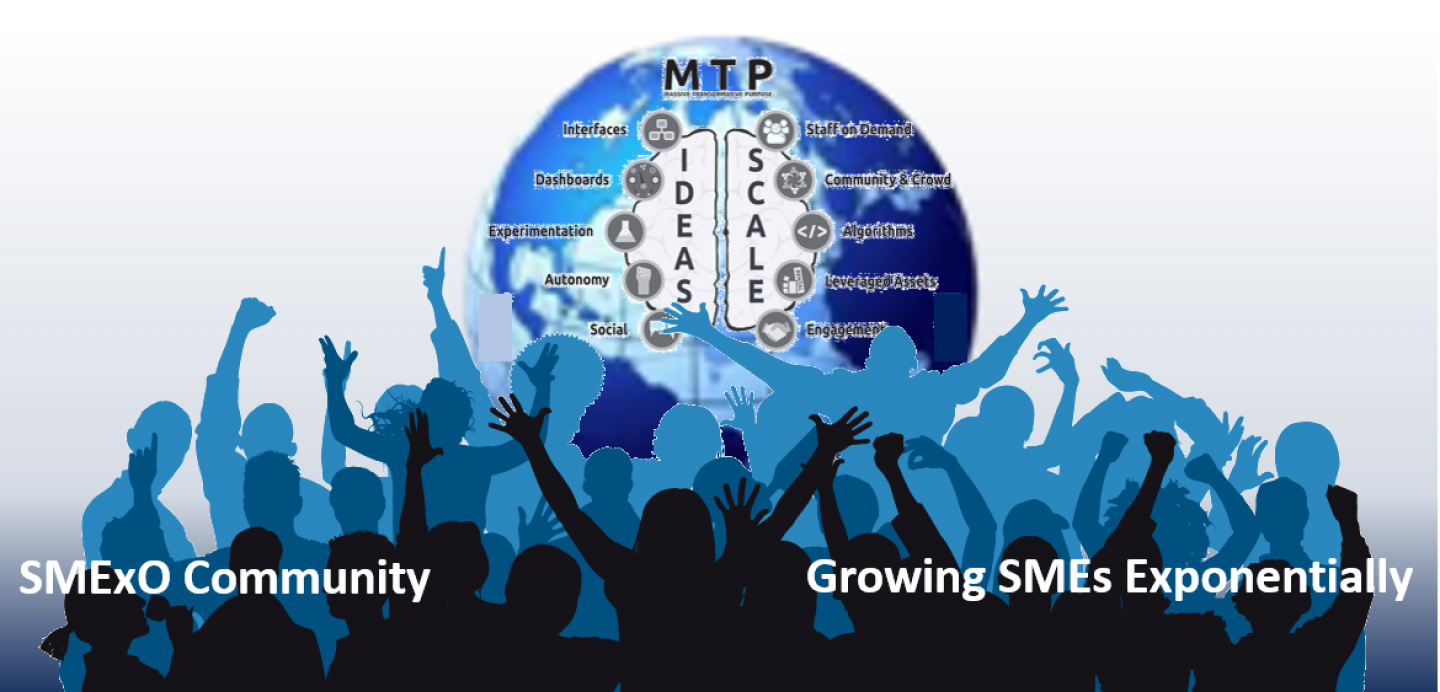Optimize your operations: The third of four dimensions of digital transformation

At a ASNET Board (1) seminar in September on digitalization, Tete Mensa-Annan Director Microsoft Technology Center gave a great presentation on the four dimensions of digital transformation as they apply to most companies.
Digital transformation is according to Tete a continuous iterative process working on four dimensions: Empower your employees, Engage your customers, Optimize your operations and Transform your products.
In our previous posts we wrote about how ExO-Tools might be applied by SMExOs (Small Medium sized Exponential Organizations) to engage with customers or transform your products. In this post we discuss how ExO-tools may be applied in optimizing your operations.
Tete said about optimizing your operations that “…data is everywhere. When you start collecting and analyzing your data, it gives you valuable insight and intelligence about your business, and it allows you to take a peek into the future and anticipate issues before they arise. Often data is also the source to knowledge and inspiration about new business opportunities, leading to new potential revenue streams.”
How could an SMExO (Small Medium sized Exponetial Organization) apply ExO-Tools to optimize operations?

Perhaps ExO-tools like Leveraged Assets and Dashboards may be applied when you optimize your operations?
Leveraged Assets are externally oriented ExO-Tools that extend your SME-capabilities and -capacity
Rather than trying to own assets you may rent or share assets to minimize capital requirements and increase agility. Examples of leveraged assets are cloud computing (e.g. Amazon Webservices) , DIY workshops and fabrication studios (e.g. TechShop) or even assets from your customers.
Why are Leveraged Assets important?
- Allows scalable products
- Lowers marginal cost of supply
- Removes having to manage assets
- Increases agility
Key questions you should ask yourself:
- What type of fixed costs can we move off the balance sheet by renting them?
- What processes can we outsource?
- Is there spare capacity lying around which we could re-purpose?
Dashboards are internally oriented ExO-Tools that change your key-figures from being descriptive to being prescriptive.
A real-time adaptable dashboard that displays essential employee and corporate metrics enables firms to deal with the huge amounts of internal and external information now available. They provide an effective means for tracking Objectives and Key Results (OKRs) by showing results on an ongoing basis in relation to individual, team and company goals.
Why are Dashboards important?
- Track critical growth drivers in real time
- OKRs create control framework to manage fast growth
- Minimize exposure from errors
- Because of short feedback loops
Key questions you should ask yourself:
- Why do you need to have real-time data?
- What real-time data do you need to track/measure?
- What will you do with this data?
(1) ASNET Board is supporting Danish SMEs in establishing an external board of directors and in this way strengthen the companies management. ASNET Board is a network organisation consisting of experienced managers working professional in company boards

Leave a Reply
You must be logged in to post a comment.